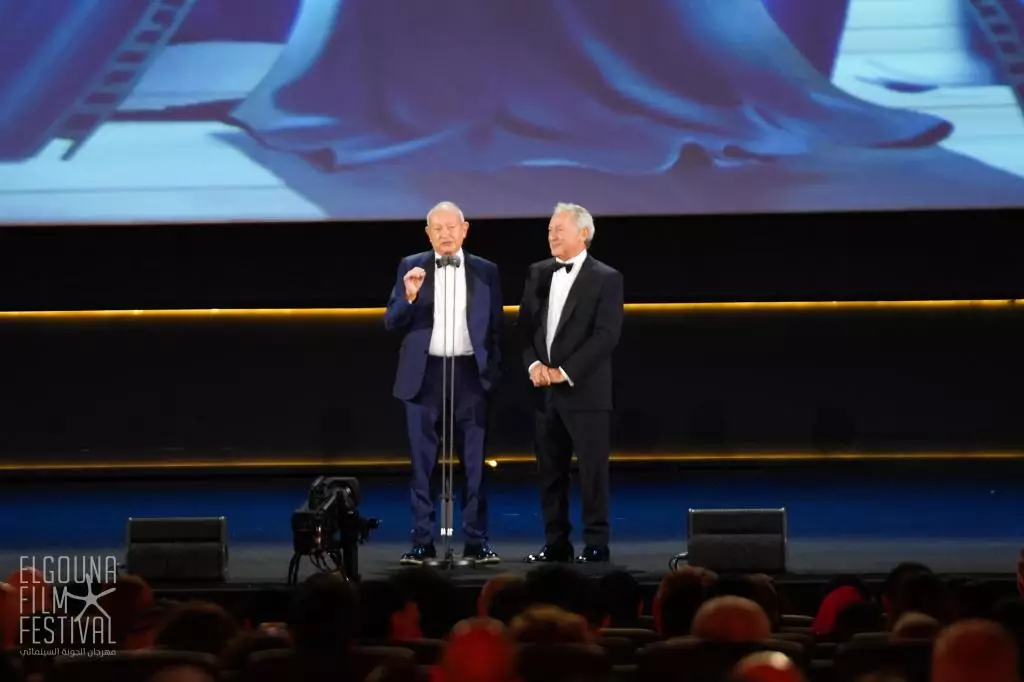The El Gouna Film Festival opened its doors on October 24, 2023, against a backdrop of regional conflict and artistic censorship. This year’s festival marks a poignant return to its traditional slot after a chaotic postponement last year due to the ongoing Israel-Hamas conflict. The festival, inherently a celebration of cinema and culture, is shadowed by calls for peace and an environment where artistic expression faces increasing restrictions.
One of the festival’s most controversial moments occurred just before the opening, when Abdelwahab Shawky’s short film, *The Last Miracle*, was suddenly removed from the lineup. This film, which reportedly contained themes related to Palestine, was pulled without explanation mere days before it was to be screened. Local sources later indicated that the revocation of its screening license by Egypt’s General Authority for Censorship of Works of Arts was the cause. Such last-minute censorship calls into question the stability of artistic freedom in Egypt and the broader implications for filmmakers addressing sensitive political topics.
*The Last Miracle*, which features a narrative inspired by the works of Naguib Mahfouz, was anticipated by many as a thoughtful exploration of existential themes emerged from socio-political turbulence. The film follows a man on a spiritual journey, catalyzed by a surreal phone call from a deceased Sheikh. Shawky himself noted the historical context of the story, written in the aftermath of the Six-Day War, highlighting the lingering psychological impacts of such events on contemporary Arab society. This historical thread suggests that creative expression is deeply intertwined with political narrative, making the censorship of the film all the more notable.
Influential film critic Tarek El Shennawi implied that the censorship could stem from a specific scene involving a dervish, which serves as a potent symbol of spiritual transcendence and perhaps a critique of societal despair. This incident not only raises serious concerns about the freedom of expression but poses questions about the ongoing feasibility of addressing sensitive topics within an Egyptian cinematic framework that is increasingly scrutinized for dissent.
Despite the unfortunate turn of events surrounding *The Last Miracle*, the festival proceeds with a lineup of impressive films, showcasing 77 features and shorts from diverse countries. Among the highlights is Pedro Almodóvar’s *The Room Next Door* making its Middle Eastern and North African premiere, a promising sign of cultural exchange and storytelling amidst strife.
Yet the festival atmosphere reflects an acknowledgment of the grim realities faced in regions affected by conflict. Naguib Sawiris, the tycoon behind the festival, made an impassioned plea for peace during his opening remarks, drawing attention to the suffering in Gaza, Lebanon, and beyond. His words resonate deeply in a world that seems increasingly fractured. “What we need now is leadership to tell people we’ve had enough of war. Stop the war,” he stated emphatically, reminding attendees that the price of war is not merely political; it is deeply personal, affecting the very fabric of humanity.
Attendees of the El Gouna Film Festival noted a stark contrast in the atmosphere compared to previous years. The typical glitz of glamorous red carpets and ostentatious fashion was noticeably subdued. Instead, there seemed to be a collective understanding of the solemnity of current events. While the festival promotes cinematic art, it is essential to navigate these complexities with sensitivity and awareness.
The opportunity for filmmakers to engage with pressing global issues is undeniable. Yet, the specter of censorship looms large, potentially stifling voices that dare to tackle uncomfortable truths. As *The Last Miracle* demonstrates, stories have power, but finding the space to tell them remains a precarious undertaking in a politically charged climate.
As El Gouna Film Festival unfolds, it stands as both a celebration of cinematic achievement and a stark reminder of the role art plays in society—reflecting, challenging, and sometimes, risking everything for the sake of truth. Moving forward, the festival may serve as a platform for dialogue about freedom of expression and the cultural narratives worth defending in an era where many stories remain untold, particularly those that confront prevailing political sentiments.
The festival’s ability to bridge cultures through cinema while advocating for peace presents an opportunity for reflection during these uncertain times. Through collaborative efforts and bold storytelling, perhaps the cinematic landscape can persist as a beacon of hope and resilience amid turmoil.

